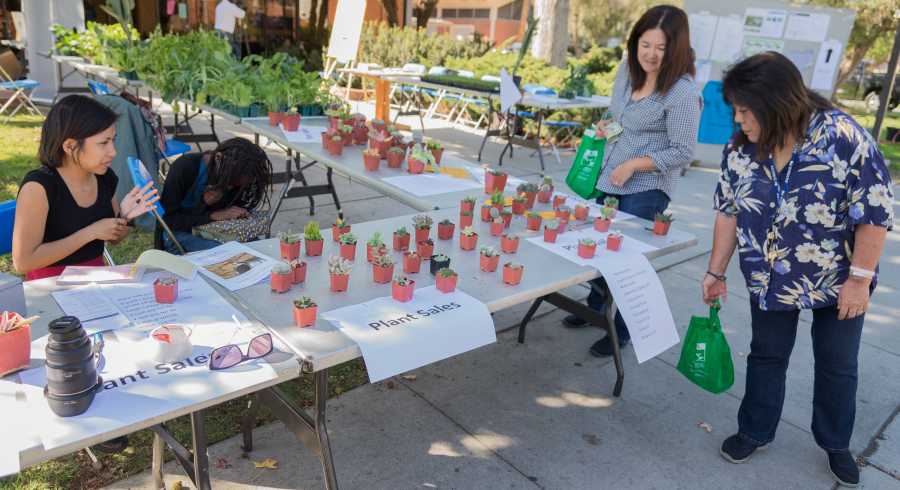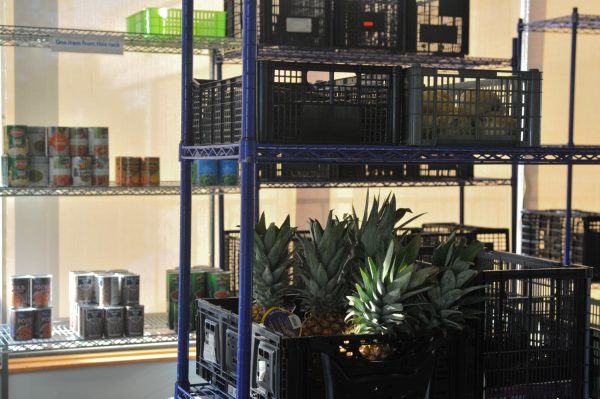Horticultural Club hosts drought workshop in midst of three-year CA dry spell
The Horticultural and Environmental Club hosted a workshop on Oct. 27 providing students with tips on how to conserve water during the statewide three-year drought.
Reginald Fagan, president of the club and coordinator of the workshop, thought the event was a success.
“I have a theory if you get a handful of people started with something like this, it’s the snowball effect,” Fagan said. “As it rolls, it gets bigger.”
At the workshop, there were speakers from several companies speaking about the drought.
“So, what I’m hoping is we will develop strong relationships with these people (water conservers) so we can become allies,” Fagan added. “A lot have products that they will or already have donated, plus these people have knowledge that we can extract and learn from.”
One company involved in the workshop was Kurapia. David Plascencia, director of operations of EcoTech Services, the company that represents Kurapia, explained exactly what it is.
“Kurapia is a species of plant and is tended to be a substitute for a typical lawn,” Plascencia said. “Typical lawns use a significant amount of water because they’re not designed by nature to live without it, so Kurapia is able to replace your typical lawn using a significant less amount of water.”
According to UC Davis research, Kurapia was hybridized in Japan and was shipped to the U.S. because of its potential to control water usage.
“If El Camino were to consider to use Kurapia in underutilized turf areas within the campus, the amount of water being used will decrease,” Plascencia said. “It’s a waste of water, in my opinion, to be watering a lawn that’s not being used except for mowing.”
Victoria Haynes,18, nutritional science major and member of the Horticultural and Environmental Club, helped passed out fliers and pamphlets during the workshop.
“I just joined (the club) last semester and I am enjoying the event because later on in the semester, we are going to be uncovering sections of El Camino and replacing them with new plants,” Haynes said.









